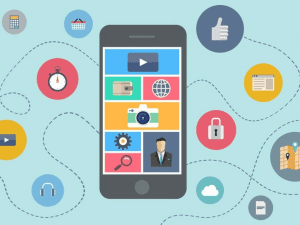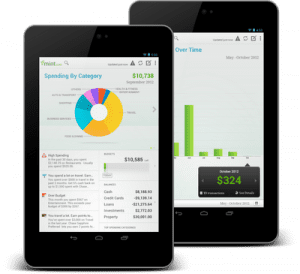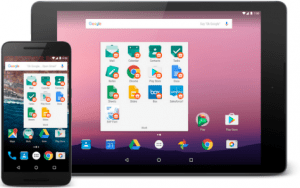
Nothing is as important as a mobile phone in today’s time. Wherever you go or whatever you are doing, your mobile is your number one accompaniment. From helping you to communicate with others to storing different data files, there are so many uses of this end device. Apart from mobiles, another handy device that is in most use nowadays is the tablet. Also known to be a hybrid between mobiles and laptops, you can take and make calls and perform all other activities you would do on a PC or laptop.
Mobile phone apps vs tablet apps. While both devices seem to be significantly similar in terms of appearance, the same cannot be said for applications developed. In other words, you cannot conclude that a mobile app can be considered a tablet app without any major change in the codebase to become more compatible with device settings and configurations. Instead, a developer needs to make significant changes in the codebase, if not from scratch to ensure that the applications meet device requirements perfectly without any technical or functional discrepancy.
Differences between mobile and tablet applications
Before hiring any tablet or mobile app development company in Bangalore, it would be best if you understand the basic differences between the applications suitable for these end devices. Once you are aware of the major points of separation, there won’t be any conflict in the development strategy or the functionalities of the end product.
Below are some of the major attributes taken into consideration for establishing a parallel study of mobile and tablet applications and their technicalities.

Device usage
One of the key considerations to make for tablet and mobile apps is device usage. It is evident that a mobile phone is used more than a tablet, owing to its compactness, usability, and flexibility. Therefore, the mobile app should be developed in a way that the device’s battery power is not consumed beyond a certain value since that can reduce the device’s performance and health. On the other hand, if we consider the tablet app, its device usage won’t be as such when compared to the mobile application. So, developers won’t have to be worried about making the app lightweight for less power and internet data consumption.
Screen size
Screen size is a prominent factor to be considered for developing mobile and tablet apps with perfection. As it is quite evident, a tablet comes with a bigger screen size than a mobile, which is why the app should be responsive accordingly to meet the configurational settings. For instance, developers need to ensure the tablet app can easily accommodate the higher pixel resolution and screen size of the end device. On the contrary, such types of validation aren’t needed for mobile apps, thanks to the similar screen sizes and pixel resolutions.
UI and navigation
A mobile app is used more than a tablet app. Furthermore, if you look at the present-day apps developed solely for tablets, you will realize that the software programs don’t offer a great deal of flexibility when it comes to the user interface and navigation. This is one of the many reasons why mobile apps need the involvement of UI developers more than tablet apps.
The user interface of a mobile app needs to be more flexible, contrasting, and interactive. On the contrary, a tablet app can have a straightforward, minimal, and formal UI design to suit the device’s purpose. Similarly, if we consider the navigation protocols of a tablet and mobile application, the former needs to have a better layout due to the increased size and UI complexity.

Device performance
It is better to consider the device performance for developing the tablet or mobile application before any kind of decision is taken. This is because if the developed application doesn’t match the device configurations and settings, there will be an adverse effect on its overall performance.
The application might draw too much battery power, thereby leading to thermal breakdown. Similarly, if the application doesn’t show compatibility with the inbuilt security protocols of the tablet or mobile device, there will be issues with data safety and privacy. That’s why developers must run performance and load testing once the beta version of the app is ready and make necessary changes accordingly.
Development costs
One of the key differences to consider before you hire a tablet or Android mobile app development company is the overall costs involved. Ideally, mobile apps are more complex than tablet apps with more configurations to match. So, the costs involved with the mobile software will be higher than the tablet applications.
Furthermore, mobile devices launched come with different settings, which is why the applications should be scalable and flexible to avoid running the software development life cycle from scratch once again.
Mobile phone apps vs tablet apps development process

Now that we understand the basic differences between mobile and tablet apps, having a run-through of the entire development process and considerations to make is imperative. Following a some of the points to remember before you hire any tablet or iOS app development company for your project.
- Both mobile and tablet application development processes are lengthy and time-consuming. As a result, it would be better to go for cross-platform development so that the app is compatible with various OS versions.
- Developers do need to keep in mind that the tablet and mobile apps should be responsive so that all the core web vitals remain optimal with device changes or differences in screen size and resolutions.
- A beta version should be launched before the main app and it must be exposed to various types of testing, including performance and load testing, volume testing, functional testing, and so on. All the testing results should be analyzed further to identify the loopholes and proper planning should be done to mitigate the challenges before the codebase is released into the live environment.
Conclusion
In this forum, we have introduced the basic differences between a mobile and tablet app that must be considered before hiring any Flutter app development company in India. Based on the considerations discussed, you must orchestrate a detailed workflow for streamlined SDLC.


 +91-984-5825982 | +91-996-4689921
+91-984-5825982 | +91-996-4689921 sales@cumulations.com
sales@cumulations.com Send your requirement
Send your requirement 